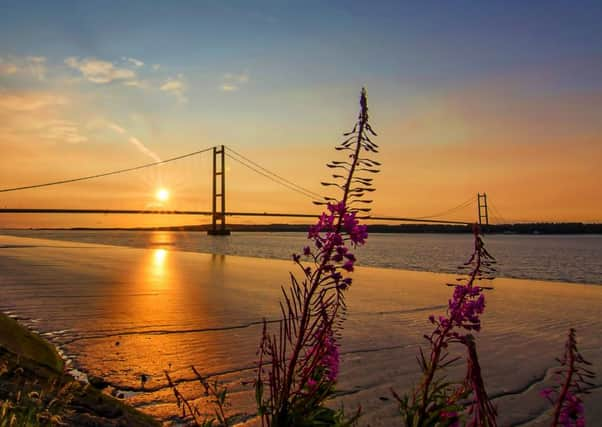YP Comment: Humber Bridge taking its toll


Labour, elected with a wafer-thin majority in 1964, went on to win the knife-edge poll on January 27 and the victory enabled Mr Wilson, Huddersfield’s proudest son, to secure a much more decisive mandate later in the year.
Yet, when the bridge over troubled waters did open in 1981, some 15 years after Kevin McNamara became the longstanding MP for Hull North, it did leave motorists, and local residents, saddled with the most punitive tolls in the country. And while these charges have been reduced to £1.50 per crossing since the Government wrote off nearly half of the historic £332m debt, there is a compelling business case for cutting these tolls still further, with the proceeds used to pay for the upkeep of this suspension bridge rather than the debts accrued in the past burdening those people who were not even born when such machinations were taking place.
Advertisement
Hide AdAdvertisement
Hide AdThey have a point. Hull, and those communities that straddle both banks of the estuary, continue to be blighted by above-average levels of deprivation, despite the welcome investment of firms like Siemens, while poor public transport means many people are compelled to travel by car.
If Hull is to exploit its status as the 2017 City of Culture, a once-in-a-generation opportunity to promote the city and East Yorkshire to a national and international audience, road users should not be paying the price for a scheme which preceded those financially flawed PFI schemes now crippling the finances of NHS trusts. As such, the Government should regard any further reduction in tolls as an investment in the future of the North.
Make or break? George Osborne has his work cut out
the PAST week’s turmoil in the global economy certainly gives credence to George Osborne’s warning that the UK faces “a cocktail of threats” as the slowdown in China sends the international money markets into freefall.
This has been compounded at the World Economic Forum in Davos by belated warnings from French prime minster Manuel Valls that the huge influx of migrants from Syria and Iraq is putting the future of the European Union in “grave danger” as Greek and Turkish coastguards recovered the bodies of the latest influx of refugees, including 20 children, to drown on the perilous journey to Europe.
Advertisement
Hide AdAdvertisement
Hide AdWith Tony Blair now conceding that the EU would face “a huge political problem” if terrorists were shown to be entering Europe among the flow of refugees, the stakes could not be higher as David Cameron and Mr Osborne prepare for a make or break referendum in which they will recommend that the UK remains an integral member of the European Union.
Both the Prime Minister and Chancellor are staking their reputations on winning this most divisive of arguments, one which is becoming harder to win with each passing day thanks to the economic turmoil and a belief that the EU is a hindrance to UK manufacturing. After another bleak week for the steel industry, they will have their work cut out if they’re to convince their critics otherwise.
Sporting own goal
FIRST the good news. Sport’s wheel of fortune means the University of Leeds is set to be the venue for a state-of-the-art £4.5m cycle track that will double up as a permanent base for Britain’s world-conquering triathletes headed by the indomitable Brownlee brothers.
Now the bad news. Despite Yorkshire finishing 12th in the final medal table at the 2012 Olympics thanks to the iron-will of competitors like Alistair and Jonny Brownlee, this region remains the poor relation when it comes to the allocation of Lottery funding and money from other schemes.
Advertisement
Hide AdAdvertisement
Hide AdSo much for the 2012 slogan ‘Inspire a generation’ – or Lord Coe’s assurances that the whole of Britain, and not just London, was supposed to benefit from not just the Olympics but its legacy, too.
Not only does this funding disparity make Yorkshire’s achievements four years ago all the more remarkable, but this North-South divide on investment in grassroots sport will make it harder to persuade more people to take up regular exercise and, in turn, become less of a burden on the cash-strapped NHS. Only the most short-sighted of sports policies could score such a spectacular own goal.